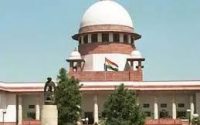Supreme Court’s Lost Chance
Source – indianexpress.com
On August 22, the Supreme Court delivered its judgement in a case challenging the constitutional validity of the practice of “instant triple talaq” by Muslim husbands. The case held significant opportunities for the Court. It was asked to decide if the practice violated the constitutional right to equality and protections against gender discrimination. Ahead of the judgment, it was widely anticipated that the Court would strike down the practice on the basis that it breached constitutional morality. It was also hoped that the Supreme Court would overturn a long-standing decision of the Bombay High Court effectively insulating personal laws from constitutional scrutiny. In spite of the majority of judges striking down the practice of instant triple talaq, the judgment did none of those things.
To be sure, the more accurate way of characterising the judgment is that some of the judges did do some of those things. But the danger of three separate opinions amongst a panel of five judges deciding a case is that the lowest common denominator prevails. In this case, the lowest common denominator was that the practice of instant triple talaq was not integral to Islam, and was therefore unprotected by the constitutional right to freedom of religion. The Court decided the case on an interpretation of religious texts rather than constitutional provisions.
The most striking implication of the Court’s judgment is that it effectively signalled that triple talaq and other religious practices would be scrutinised through the lens of religion rather than the right to equality. The battle for equality will, as a result, continue to be waged in the language of religion rather than the language of rights. There is another particularly disquieting feature of judges adjudicating upon the significance of religious practices. The Court opens itself up to uncomfortable questions of institutional and individual competence.
The dissenting opinion alluded to this in no uncertain terms. Citing four high court cases that held that triple talaq was integral to Islam, the opinion stated that all of those cases were decided by “Sunni Muslims, belonging to the Hanafi school” which “cannot be considered an outsider’s view” of Islam. This criticism of the majority’s opinion, decided by judges of different faiths, is hardly subtle. Investigating the legitimacy of this criticism is for another day. But transforming the language of argument from religious texts to constitutional rights would alleviate it considerably, for all judges are equally “outsiders” (or insiders) on questions of fundamental rights. Yet, with the Court’s decision, the bench composition in cases involving personal law will become more significant than ever before.
Perhaps the greatest success of the majority opinions is that they avoided the situation that would have arisen had the dissenting opinion prevailed. In spite of holding the practice of triple talaq constitutionally valid, the dissenting opinion — recognising the injustices associated with the practice — was willing to decouple the constitutional right from the remedy. More specifically, the opinion would have imposed a six-month injunction to enable Parliament to enact legislation on the subject. The injunction would continue if appropriate legislation was introduced in Parliament within that time frame.
This outcome would have been not only constitutionally suspect, but also pragmatically unsound. The Supreme Court lacks the authority to direct Parliament to enact legislation. The dissenting opinion’s justification — that the Union government adopted an “aggressive” position in the case — mistakenly conflates Parliament and government. More significantly, the Court would have been aware that its exhortations to Parliament in several previous cases have fallen upon deaf ears, eroding its authority. It is not difficult to see why in the game of modern politics, governments in India (and elsewhere) see it in their interests to defer difficult decisions to Courts. The dissenting opinion should have acknowledged that the incentive structures simply do not line up for governments to push controversial legislation through Parliament.
The legacy of the case will likely be one of missed opportunities. It is legitimate for us to expect more from a constitution bench decision of the Supreme Court.



